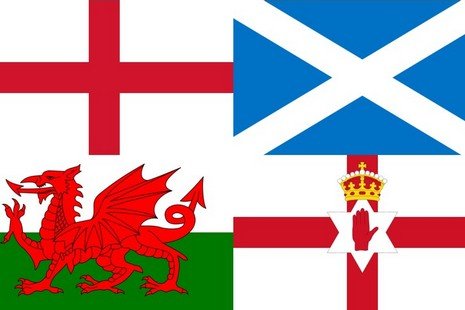The United Kingdom is disunited over Brexit
Scotland, Wales and Northern Ireland attempted to negotiate with Theresa May in Cardiff with regard to their being able to continue to benefit from a European Single Market. In vain, so it would seem.
 The leaders of the devolved governments of Scotland, Wales, and Northern Island yesterday met the Prime Minister of the United Kingdom, Theresa May, in the Welsh capital of Cardiff.
The leaders of the devolved governments of Scotland, Wales, and Northern Island yesterday met the Prime Minister of the United Kingdom, Theresa May, in the Welsh capital of Cardiff.
At this meeting of the Joint Ministerial Committee, they were to demand a role in the Brexit negotiations. However, the Prime Minister dashed their hopes, reiterating that the devolved powers would not have a decisive part to play in the forthcoming negotiations with Brussels about Brexit.
Whether May likes it or not, Brexit is fueling separatist movements in the devolved regions of the United Kingdom. The Scottish and Welsh governments came to the meeting armed with their respective plans which, they believed, should allow them to continue to have total access to the European Single Market.
“The differences are not irreconcilable,” the Welsh administration indicated at the end of the meeting. However, the Scottish government felt that their proposals had not been taken seriously and that it is still very far from reaching a common position with the London government.
For Scotland, where 62% voted to remain in the EU, the stakes are high. The Scottish First Minister, Nicola Sturgeon, clearly indicated that “time is of the essence” before the enactment of Article 50, giving the UK the green light to leave the EU.
As for Wales, 53% voted for Brexit, with the exception of its capital, Cardiff.
May was to then go to Dublin for discussions with the First Minister, Enda Kenny.
The Irish Republic joined the European Union in 1973. This means that, if the UK leaves the EU, the new European border will be between the two Irelands, once again separating North and South.
The absence of a frontier between the two enabled a bolstering of the peace achieved in April 1998, with the signing of the Good Friday Agreement. Through this agreement, the British government recognized for the first time that the people of the whole of Ireland are able, together, to resolve the problems between North and South through mutual consent, and without external intervention.
In both Dublin and Belfast, there is real concern that Brexit will re-ignite the conflict between North and South.
Moreover, the Irish First Minister has called for “a border fluidity” between the two Irelands to be maintained. If not, there is the fear that a harsh Brexit will mean the re-imposition of customs control over the movement of goods and people, which would be detrimental to both Irelands.
May remains impervious to all these demands, reiterating that the Supreme Court has established “without any possible doubt” that relations with the EU will be decided by the government and the Parliament of the United Kingdom.


 Votes : 0
Votes : 0









